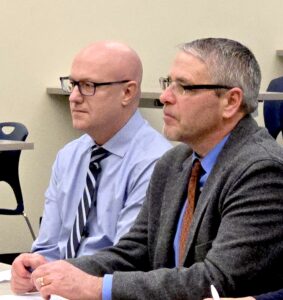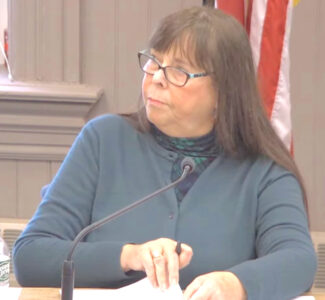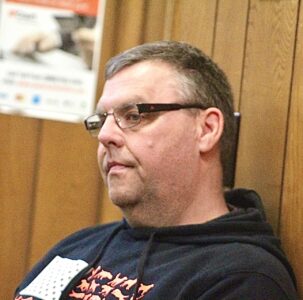Temporary weed licenses may be coming soon
Temporary licenses to grow and process marijuana are on their way through the state Senate.
State Sen. George Borrello, R-Sunset Bay, voted for S.8084 recently when the legislation was discussed by the Senate Agriculture Committee — though Borrello had several questions before casting his vote. Chief among them was who the newly licensed growers and processors could sell their product to since New York still doesn’t have any legal dispensaries.
“So we’re going to give them with this bill the ability to sell,” Borrello said. “Now we all know, right now because of the way this law, this legislation was rolled out, they decriminalized the possession of marijuana. So we have people who are gifting marijuana to people. You have places where you buy a sticker and they give you a bag of weed. We have native territories selling hundreds on territories and nations. Would these people, under this law, be able to sell to those people that are now selling it through a gray market, if you will?”
Counsel for the Agriculture Committee said the gray market Borrello referred to is indeed illegal. That opinion was confirmed later this week by the state Office of Cannabis Management, which sent letters to more than two dozen enterprises it suspects of illegally selling weed, telling them to stop or face fines, potential criminal charges and risk to their prospects of getting a license once they are available.
“New York state is building a legal, regulated cannabis market that will ensure products are tested and safe for consumers” and will provide opportunities for people affected by the enforcement of now-scrapped marijuana laws, OCM Executive Director Chris Alexander said in a statement. “Illegal operations undermine our ability to do that.”
S.8084 doesn’t address the gray market for marijuana. It provides for conditional adult-use cultivator licenses and conditional adult-use processor licenses. In order to apply for a license, someone must have a valid industrial hemp grower authorization from the state Department of Agriculture and Markets as of the end of 2021, be in good standing, and have grown and harvested hemp for at least two of the previous four years. License holders are allowed to cultivate cannabis outdoors or in a greenhouse without artificial lighting. The license limits the amount of cannabis that can be grown. Holders will also be able to manufacture and distribute cannabis products provided they are in the form of cannabis flower until June 1, 2023, without needing additional licenses. After June 1, 2023, actual processor and distributor licenses would be required. Any holders of the provisional licenses, if they are judged to be in good standing, will be allowed to apply for a regular adult-cannabis cultivator license.
“The idea is that the licenses and the dispensaries will be up and running by the time this is set, but we have to have the product to actually start the market, which takes a bit longer,” said Sen. Michelle Hinchey, D-Kingston and Agriculture Committee chairwoman. “So we know the Office of Cannabis Management is moving rapidly. There was an article this morning that said there could be licenses across the board by the end of 2022 for dispensaries and such, but in order to do that and be as successful as possible, especially making sure the product is New York-grown, which is the whole point of what we want with the MRTA so that our farmers in New York state are the ones benefitting from this new market, we have to start the grow process early.”
Borrello also questioned the conditional license’s requirement that license holders comply with social equity and mentorship programs. The senator’s concerns date back to his floor debate with Sen. Liz Krueger, D-New York City and sponsor of the Marihuana Regulation & Taxation Act, who said the mentors involved would include convicted felons. Legal counsel noted the Office of Cannabis Management hasn’t yet created guidelines for the mentorship and social equity portions of the program but said farmers won’t have to interact with felons if they don’t want to.
“I’m all in favor of bringing more people into farming because we do need more farmers,” Borrello said. “We need young farmers. We need diverse farmers. I just want to make sure that it’s very clear that this is a cash business. This is a business that these people have been successful in hemp and transitioning is going to require a lot of investment on their part and I want to be careful what the unintended consequences may be.”
Hinchey said many of the state’s hemp farmers are white, so the MRTA was written with language to bring a more diverse group of new farmers into the fold. The goal is for those who are new to farming to have access to experienced farmers who know what they are doing and eventually become the next wave of farmers. As for including former felons in the state’s marijuana business, Hinchey said the program should help those who are trying to make the most of a second chance at success.
“I want to add that people who are formerly incarcerated and are out are people who are getting a second chance,” Hinchey said. “These are people who want to get their life back on track and should have just as many opportunities as anybody else. They have served their time and have been released and want to be successful. Our economy is significantly better when everyone is in the workforce.”




